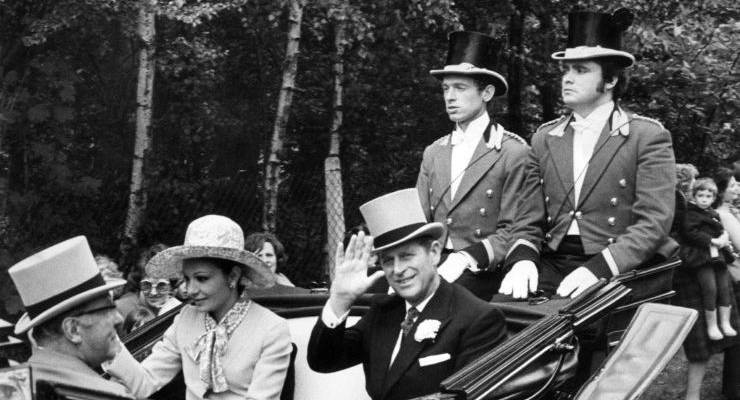
I was actually closer to Prince Philip than most people realise. Literally.
In 1973 I was living in London and was deeply involved with the anti-Apartheid movement. We were also campaigning for the liberation of the violently-held Portuguese colonies of Mozambique, Angola and Guinea Bissau.
In May, the UK government decided to celebrate the anniversary of the Anglo-Portuguese alliance by sending Prince Philip to Lisbon to attend a triumphalist extravaganza hosted by the authoritarian Portuguese Government.
We decided to protest this event, so started a mini campaign.
We discovered that Prince Philip was due to attend the Chelsea Flower Show, so three of us — Peter Hain (now Lord Hain), my sister Verity and I descended on the iconic British flowerfest.
Somehow we discovered that Philip would be exiting via the tradesmen’s entrance so we scooted round the back. There we found Philip on his own and looking a bit lost. We surrounded him and started to entreat him not to carry out this dubious diplomatic engagement.
All I could think of was “gosh when are we going to be arrested?” There was not a security person in sight. Not even an aide or a handkerchief carrier.
Philip was tall and blonde — very plummy English and absolutely clueless. He obviously had no idea what we were on about as we earnestly lectured him about the cruelties of the Portuguese colonial regimes.
He kept saying (quite reasonably) “it’s only a dinner engagement” and “I just do what I’m told”. With that last response we then got going on the fragility of the Nuremberg defence while he looked even more baffled. He had obviously never thought about the ongoing wars of liberation in Africa and certainly did not know about Portugal’s violent repression.
His lone state and our ensuing politeness made for a very strange little tableau.
This one-sided conversation went on for about five minutes and only ended when his staffer eventually turned up and they wandered off.
I always thought of this as a very British protest — a bitter dispute, a clueless symbol of the ruling class, and three very polite demonstrators.
Dr Meredith Burgmann is a former leader of the anti-Apartheid movement and a previous Labor president of the NSW Legislative Council. Her book (co-authored with Nadia Wheatley), Radicals: Remembering the Sixties, has just been released.







Thank goodness for your article, Meredith. It’s such a refreshing change from the nauseating hagiographies of a man of very questionable ethics. But then, that is an absolute pre-requisite for marrying into the British monarchy.
Good on ya Meredith, your description of Philip as clueless is probably the most apt. He was probably a nice enough guy, but let’s face it, his one purpose in life was to sire the queen’s offspring and than spend the rest of his existence just toeing the line which he did, more or less.
Turns out he was a pioneering environmentalist! Who knew he drove an electric car?
Kept his light under a bushel when he would have been better putting it out there to set an example instead of perpetuating the parasitic system.
The “Nation’s Grandfather” to quote his sycophantic second son. As a lifelong (UK & Aust) republican I can’t see myself on the old blokes knee. Too plebian, I suppose.
That’s funny, Meredith. Suitably clueless, I think that’s a fair appraisal.
I bet that book has a few crackers in it.